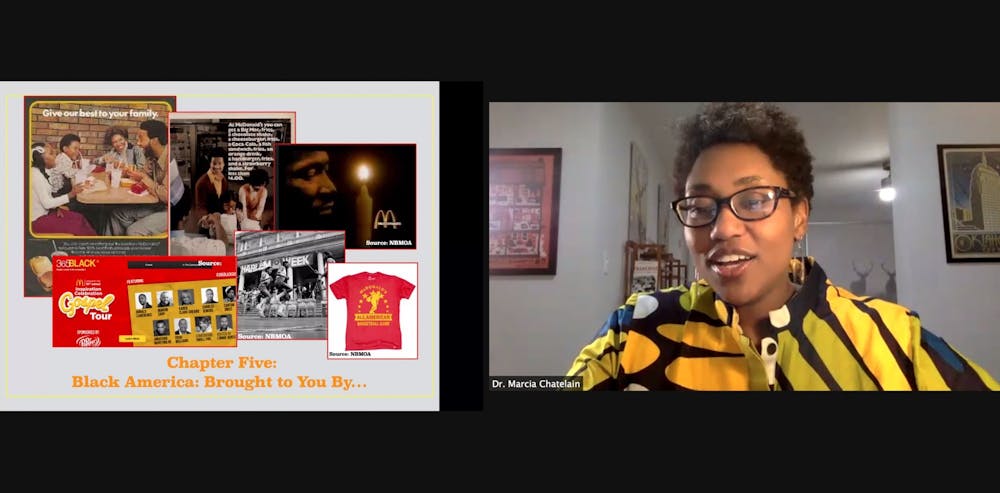Acclaimed historian and Georgetown University professor Marcia Chatelain delivered UNC’s 2022 African American History Month lecture Wednesday.
Chatelain, who delivered the lecture during a virtual webinar, spoke about her Pulitzer Prize-winning novel “Franchise: The Golden Arches in Black America,” which explores the relationship between McDonald's and Black entrepreneurship.
"A cultural product like McDonald’s, which is consumed in the United States and around the world, on one hand is accessible and enjoyed by all people, but in its own way can signify Blackness," Chatelain said.
Joseph Jordan, vice provost for academic and community engagement, and Lisa Lindsay, chairperson of the Department of History, moderated the discussion.
“Tonight, we have one of the most important elements of Black History Month here on UNC’s campus, and that is representation from the history department,” Jordan said. “I think it’s important to say that part of the reason that this event continues, and continued for so long, is because of the leadership that the history department took in making sure that this event happened.”
During her lecture, Chatelain discussed the legacy of McDonald’s in relation to America’s Black community. After the assassination of Martin Luther King Jr., whose death rocked the civil rights movement in 1968, the fast-food chain saw its first Black franchise holder, Herman Petty.
“And what that lens and what that filter provided was an opportunity to think in a really interdisciplinary way,” she said. "Not only about civil rights history, but business history, the history of marketing, the history of the arts, as well as a history of how we have crafted, in the United States, a series of responses to racial unrest that fundamentally miss the point of why we have so much unfinished business in the United States.”
Chatelain described the ways in which prejudice and systemic discrimination, such as redlining, have historically impacted how McDonald’s franchises were established and determined who could establish them.
“If we think about the emergence of McDonald’s as serving the ascendant white middle class in white-flight suburbs, and we think about the fact that many of the first white men who entered fast-food franchising were able to use loans from banks as well as provisions from the G.I. Bill for small-business ownership, we see all of these structural barriers that were erected around Black people from accessing capital,” she said. “But we also see a kind of fantasy of a raceless possibility of economic prosperity that is just about hard work, and that is just about innovation and good ideas.”




